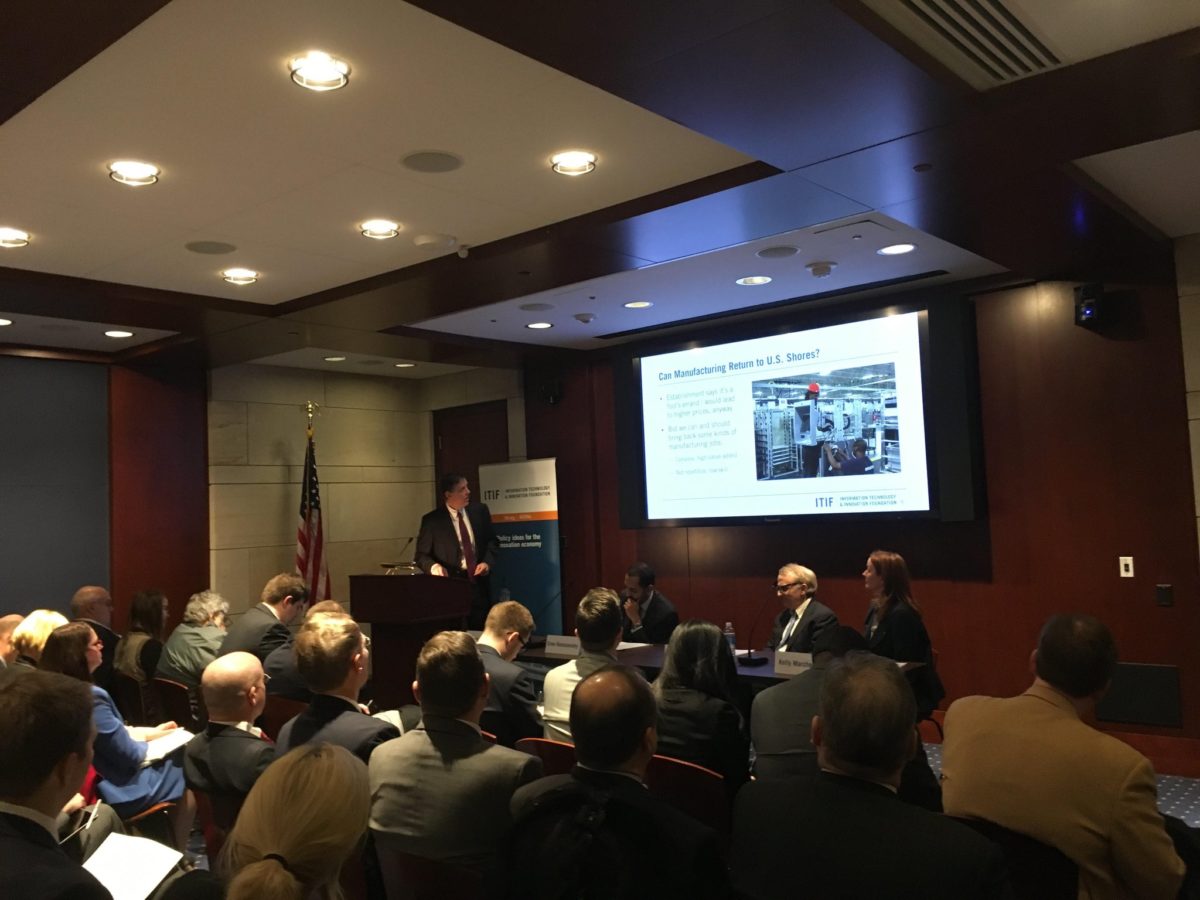As the U.S. Small Business Administration’s G. Nagesh Rao told Technical.ly in an interview not long ago, Small Business Innovation Research (SBIR) and STTR contracts are super cool. It’s free money, from the government, to develop an innovative piece of technology.
And some of these pieces of technology not only become useful for the government, but commercially successful as well. (Proof — iRobot’s Roomba vacuum has its roots, somewhere along the line, in SBIR funding from the Department of Defense.)
But here’s the thing — awardees of the SBIR and STTR contracts don’t necessarily have the business experience and knowledge necessary to turn their idea into a company. This is a problem that ByteCubed, the Crystal City-based govtech consulting firm, wants to solve. And so they developed Velociter.
The Velociter program, currently available for small businesses that have won an SBIR or STTR contract from the Department of Defense (but that could be expanded in the future), is a kind of “entrepreneurial training program,” Program Director Jangela Shumskas told Technical.ly. The core of the program is a four-week intensive during which selected entrepreneurs learn about lean startup methodology, get help identifying potential customers and investors and receive general mentorship. Shumskas describes these four weeks as “process driven and very intense” — but in total ByteCubed works with the chosen companies for a period of six months or more. The program is now entering its second year.
Why help the little guys along the way? ByteCubed, Shumskas tells Technical.ly, has a strong belief that small businesses are the “unsung heroes” of the economy. Of the 74 participants in the current cohort, around 65 percent have fewer than 10 employees. And because “working with the government is very confusing,” ByteCubed is using Velociter to share its expertise.
Shumskas, who works as director of commercialization at ByteCubed and is as such tasked with creating programs like Velociter, describes her job as “working with these brilliant folks to basically teach them how to talk to humans.” That’s precisely the challenge of technology transfer — you might have an idea with tremendous potential, but you’ll need to take it out of the lab and onto the market. And that’s, well, often easier said than done.
Velociter is free for participants with DoD contract funding (because the program itself is funded by the DoD), but it’s a significant time investment for the entrepreneurs, Shumskas said. Still, that’s a pretty good deal.
Got DoD funding and not sure what to do next? Velociter’s accepting applications.
Before you go...
Please consider supporting Technical.ly to keep our independent journalism strong. Unlike most business-focused media outlets, we don’t have a paywall. Instead, we count on your personal and organizational support.
Join our growing Slack community
Join 5,000 tech professionals and entrepreneurs in our community Slack today!

This Week in Jobs: Fall from the coconut tree and check out these 22 career opportunities

Gen Z pivots to gig jobs instead of full-time work: Who is that good for?

Advanced manufacturing can transform communities — when done right

